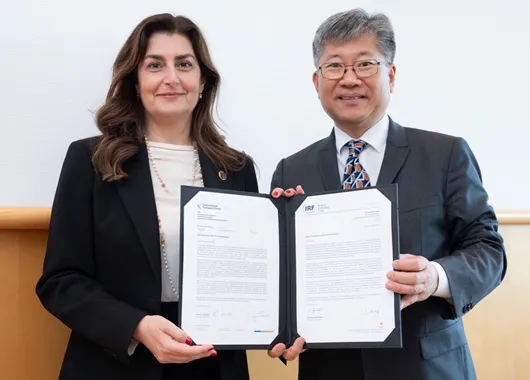The American National Standards Institute (ANSI) has formed a cross-sector Electric Vehicles Standards Panel (EVSP) and is seeking participants with relevant expertise and interest to begin the critical work of developing a standardisation roadmap to enable the safe, mass deployment of electric vehicles and associated infrastructure in the United States. The goal is to develop version one of the roadmap this year.
May 17, 2012
Read time: 2 mins
RSSThe 5223 American National Standards Institute (ANSI) has formed a cross-sector Electric Vehicles Standards Panel (EVSP) and is seeking participants with relevant expertise and interest to begin the critical work of developing a standardisation roadmap to enable the safe, mass deployment of electric vehicles and associated infrastructure in the United States. The goal is to develop version one of the roadmap this year.
Participation is open to all interested parties from industry, government agencies, utilities, standards and conformity assessment organisations, code officials, trade associations, academia, and other relevant areas. There are participation fees to cover activity costs.
All interested stakeholders are invited to take part in a kick-off call on Tuesday, May 17, 2011. To participate, send an email to [email protected] or visit the EVSP web site at www.ansi.org/evsp for an RSVP form and more information.
"The EVSP will provide a mechanism to foster coordination and collaboration among public and private sector stakeholders – including industry, government agencies, utilities, standards and conformity assessment organizations, code officials, and others – to enable the safe, mass deployment of electric vehicles and associated infrastructure in the U.S. with international coordination, adaptability, and engagement," said ANSI president and CEO, S. Joe Bhatia.
Through ANSI's role as US member of various regional and international standardization bodies, the panel will also provide coherent and coordinated US policy and technical input to relevant regional and international audiences on needed standards and conformity assessment programs related to electric vehicles. In addition, the EVSP will liaise and coordinate as appropriate with other domestic and international electric vehicle initiatives. Many such activities are already underway that will inform the panel's work, including the National Institute of Standards and Technology (NIST) Smart Grid Interoperability Panel (SGIP) vehicle-2-grid activity.
Participation is open to all interested parties from industry, government agencies, utilities, standards and conformity assessment organisations, code officials, trade associations, academia, and other relevant areas. There are participation fees to cover activity costs.
All interested stakeholders are invited to take part in a kick-off call on Tuesday, May 17, 2011. To participate, send an email to [email protected] or visit the EVSP web site at www.ansi.org/evsp for an RSVP form and more information.
"The EVSP will provide a mechanism to foster coordination and collaboration among public and private sector stakeholders – including industry, government agencies, utilities, standards and conformity assessment organizations, code officials, and others – to enable the safe, mass deployment of electric vehicles and associated infrastructure in the U.S. with international coordination, adaptability, and engagement," said ANSI president and CEO, S. Joe Bhatia.
Through ANSI's role as US member of various regional and international standardization bodies, the panel will also provide coherent and coordinated US policy and technical input to relevant regional and international audiences on needed standards and conformity assessment programs related to electric vehicles. In addition, the EVSP will liaise and coordinate as appropriate with other domestic and international electric vehicle initiatives. Many such activities are already underway that will inform the panel's work, including the National Institute of Standards and Technology (NIST) Smart Grid Interoperability Panel (SGIP) vehicle-2-grid activity.








